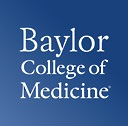Publication Date
12-30-2016
Journal
Microbiome
DOI
10.1186/s40168-016-0214-x
PMID
28034306
PMCID
5200970
PubMedCentral® Posted Date
2016
PubMedCentral® Full Text Version
Published version
Published Open-Access
yes
Keywords
Preterm infant, Intestinal colonization, Microbiome, Breast milk, Nutrition, Newborn intensive care
Abstract
BACKGROUND: The initial acquisition and early development of the intestinal microbiome during infancy are important to human health across the lifespan. Mode of birth, antibiotic administration, environment of care, and nutrition have all been shown to play a role in the assembly of the intestinal microbiome during early life. For preterm infants, who are disproportionately at risk of inflammatory intestinal disease (i.e., necrotizing enterocolitis), a unique set of clinical factors influence the establishment of the microbiome. The purpose of this study was to establish the influence of nutritional exposures on the intestinal microbiome in a cohort of preterm infants early in life.
RESULTS: Principal component analysis of 199 samples from 30 preterm infants (<32 >weeks) over the first 60 days following birth showed that the intestinal microbiome was influenced by postnatal time (p < 0.001, R (2) = 0.13), birth weight (p < 0.001, R (2) = 0.08), and nutrition (p < 0.001, R (2) = 0.21). Infants who were fed breast milk had a greater initial bacterial diversity and a more gradual acquisition of diversity compared to infants who were fed infant formula. The microbiome of infants fed breast milk were more similar regardless of birth weight (p = 0.049), in contrast to the microbiome of infants fed infant formula, which clustered differently based on birth weight (p < 0.001). By adjusting for differences in gut maturity, an ordered succession of microbial phylotypes was observed in breast milk-fed infants, which appeared to be disrupted in those fed infant formula. Supplementation with pasteurized donor human milk was partially successful in promoting a microbiome more similar to breast milk-fed infants and moderating rapid increases in bacterial diversity.
CONCLUSIONS: The preterm infant intestinal microbiome is influenced by postnatal time, birth weight, gestational age, and nutrition. Feeding with breast milk appears to mask the influence of birth weight, suggesting a protective effect against gut immaturity in the preterm infant. These findings suggest not only a microbial mechanism underpinning the body of evidence showing that breast milk promotes intestinal health in the preterm infant but also a dynamic interplay of host and dietary factors that facilitate the colonization of and enrichment for specific microbes during establishment of the preterm infant microbiota.
Included in
Cell and Developmental Biology Commons, Immunology and Infectious Disease Commons, Maternal and Child Health Commons, Microbiology Commons



Comments
Published under a CC-BY-NC-ND4.0 license